BBC NEWS – Magazine | By Hugh Schofield – BBC NEW, Paris | March 15, 2016
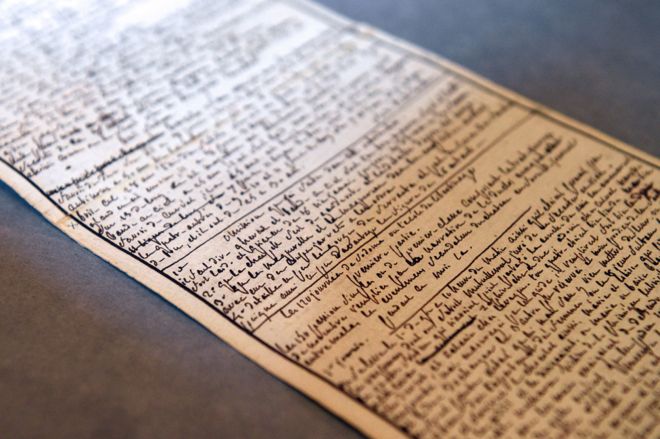
About 18,000 people in France are believed to have been defrauded in one of the biggest ever arts-market scams. They bought shares in rare manuscripts and letters to a value of nearly 1bn euros, before the company behind it was shut down by regulators. Now the victims of Aristophil want to know what is left of their investment.
Up until a few months ago you could visit a place called the Museum of Letters and Documents, on the Boulevard Saint-Germain in the heart of literary Paris.
Even this morning, Wikipedia English said the museum – with its stock of 130,000 rare manuscripts – was open for business.
It isn’t. What was once the haunt of dreamy youth is now a branch of Bang and Olufsen. The documents are in a warehouse in Seine-Saint-Denis.
The closure followed the disgrace of a businessman and enthusiast, who over a decade turned the fusty world of French manuscripts and autographs on its head.
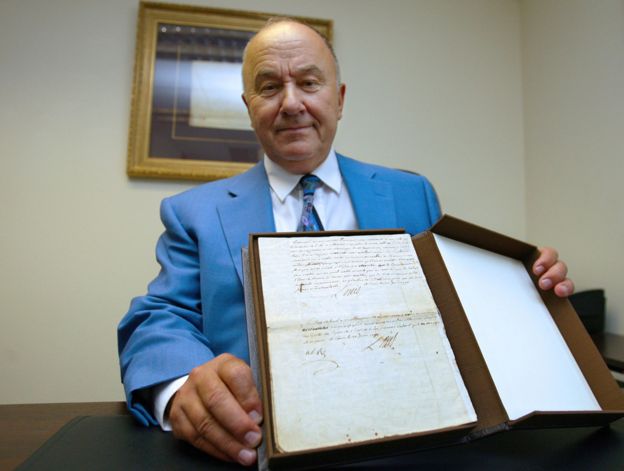
Image courtesy of AFP
Gerard Lheritier was – for a time – a visionary. He saw in the world of rare letters and documents a market that was seriously undervalued.
As his lawyer Francis Triboulet puts it, “Lheritier spotted before anyone else did that people adore old documents – anything that lets them come into physical contact with their heroes of the past.”
But today his fortune has been confiscated, his company put into liquidation, while across the country thousands of angry investors are baying for his blood.
The son of a plumber from eastern France, Lheritier was a self-taught outsider in a field dominated by a handful of Paris dealers. About 15 years ago, he enlisted the help of one of these experts, and began buying.
One of his early acquisitions was a document called the Einstein-Musso – 54 pages of calculations on the theory of general relativity – which he bought for just over 500,000 euros.
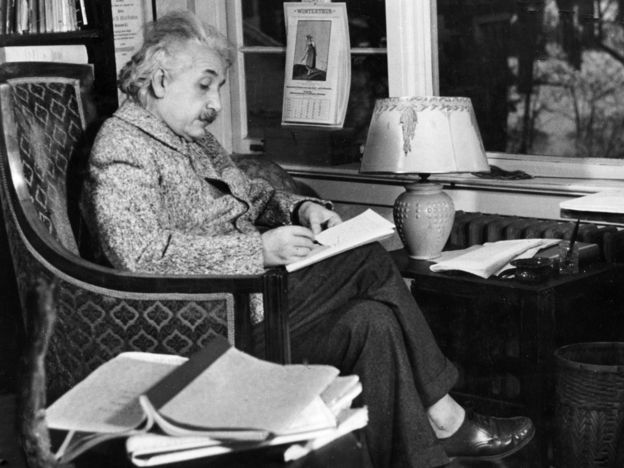
Lheritier’s next step was to become his business model. He divided the Einstein-Musso into 400 “shares”, which he sold on to investors.
The fact that the total value now amounted to 12m euros – 24 times the amount he had spent – was easily explicable: the market was growing, the investors were in early, and everyone wanted a piece of Einstein.
Over the years Gerard Lheritier developed his system to become king of the market. His presence at a sale set prices soaring.

His company Aristophil employed hundreds of sales staff across France, giving “independent” advice about the huge returns awaiting those willing to make the jump.
Aude Nehring’s father was one of those who fell for the lure. Looking for an investment for his children, he was approached by a broker and placed his 35,000 euros in part-shares in seven Aristophil documents.
He never saw the documents, but he was assured a return of 8% a year. In the contract, Aristophil reserved the right (but significantly not the obligation) to buy back the shares at the appreciated value.
Aude’s father died two years ago, never realising that his investment was a dud. “It makes me so angry to think what Aristophil did,” she says. “My father was not a fool. He was a businessman himself. But somehow they managed to persuade him.”
Something about the cachet of owning historic documents kept the punters coming.
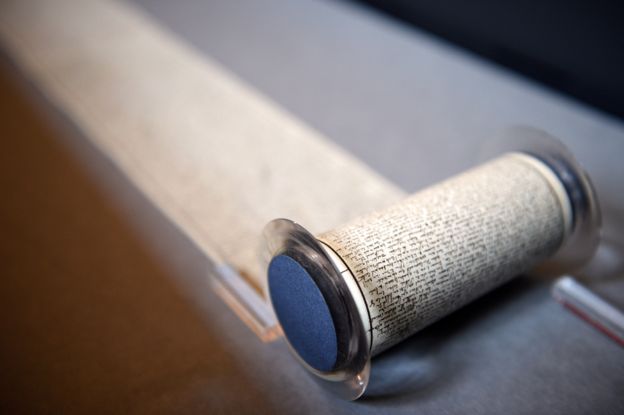
Image above: courtesy of AFP
And behind the hype there was some reality. Gradually Lheritier was amassing a huge collection of manuscripts – some of which were indeed very valuable: Dead Sea Scrolls, Mozart scores, a Marquis de Sade original.
France’s best-known newsreader Patrick Poivre d’Arvor joined the roadshow, lending the scheme – in the eyes of the public – an adamantine kudos.
And there were the museums – first in Paris and a second in Brussels – pushing the notion that documents and letters from the past are intrinsically possessed of value.
But – as the French expression goes – the worm was in the fruit. In November 2014, financial regulators stepped in. Aristophil was defined as a Ponzi-style pyramid scheme, built on false advertising and illusionary market values. Lheritier was charged with fraud, and his vast collection put under lock and key.
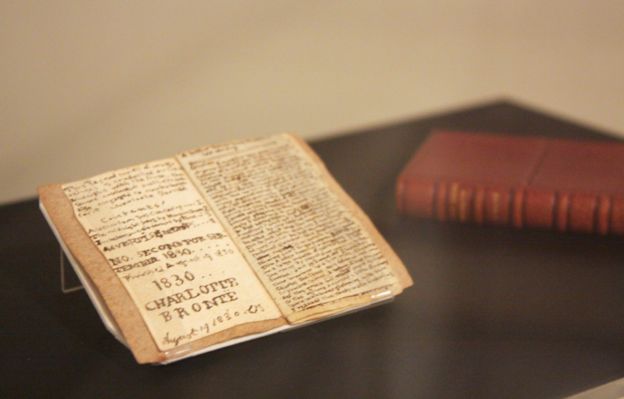
Arguing his defence, lawyer Francis Triboulet told me that yes, things had taken a bad turn in 2013-14 – but it was wrong to say the Aristophil model was inherently fraudulent.
“The fact is that the investors were acquiring actual items of value – the documents. And still today, they are the owners of those documents!
“So no-one can even say for certain that they have lost money, because the documents have not been put on the market – and who can say what they are worth?”
Triboulet says the prosecution of his client is like something out of the science fiction film Minority Report, where crimes can be predicted.
“They closed down Aristophil on the basis of a hypothetical fraud that might happen in the future. At the time, not one investor had lodged a complaint. I think in court the charge will be very hard to stand up.”
But lawyers representing victims say that the fact of there being assets – the documents – is irrelevant.
“Gerard Lheritier was offering returns – 40% over five years – which he knew were unattainable. But he needed the investment to keep coming in,” says lawyer Philippe Julien.
One bizarre twist in the story is that in 2012 – well before the collapse of his company – Gerard Lheritier was the biggest ever winner in France of the EuroMillions lottery, scooping a 170m-euro jackpot.
Absurd though it sounds, there is no evidence to suggest that the win was not genuine. (Initially there was speculation Lheritier was proclaiming a jackpot in order to mask the origin of part of his wealth).
According to Francis Triboulet, Lheritier put 40m euros of the new money straight into Aristophil – proof that it was legitimate (otherwise why would he invest so much of his own cash?)
Meaningless, says the prosecution. Pyramid schemes depend on appearance, so the guilty always spend a fortune.
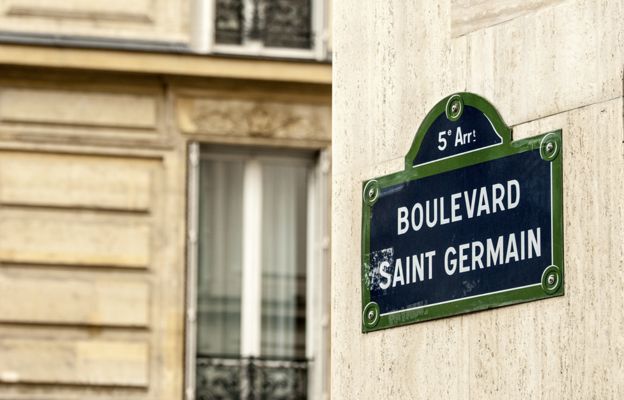
Based around half a dozen galleries in the modish Saint-Germain quarter, the world of French manuscripts is today gradually recovering its poise – so rudely shaken by the irruption of the Aristophil parvenu.
“From the start I suspected a fraud. The vulgarity of the publicity was glaring. Hugo up 5% in a year! Baudelaire up 10%!” says dealer Frederic Castaing.
“But the point is there is no set value for a Victor Hugo letter. It depends on far too many variables.
“Anyway real collectors aren’t that interested in the pecuniary value of a document. They love the touch of it, the sense of communing with a personage who is normally shut up in an encyclopedia.
“What Lheritier did was turn part of our cultural heritage into stocks and shares. It was detestable.”


